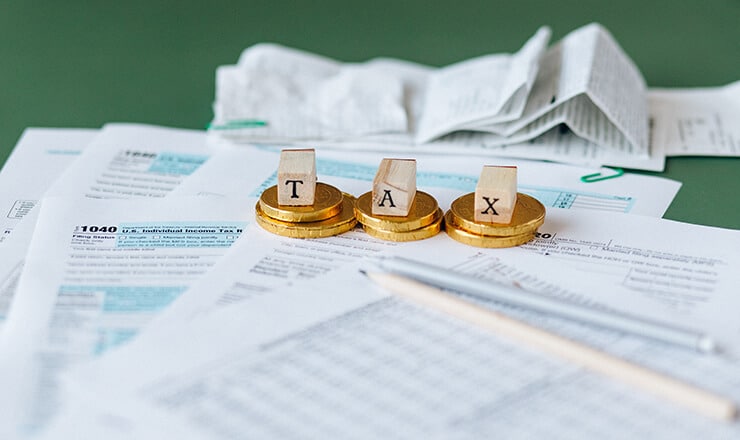Selling a rental is not the same as selling a primary residence because the IRS sees it as a business investment. When you sell a rental property, the profit (or gain) is reported as a taxable sale. Here’s what you need to know about capital gains and how to avoid them.
How to Calculate Capital Gains Tax?
There are two kinds of capital taxes, depending on how long you held the rental in your portfolio. The income from the sale is taxed based on a long-term or short-term capital gains rate. What does that mean?
- A short-term rate applies if you held onto the property for less than a year. If that is the case, the tax rate is the same as your normal income tax rate. The maximum you can pay is 37%.
- The long-term rate applies if you held onto the property for more than a year. These tax rates are 0%, 15%, or 20%, applied according to income and filing status.
Avoid (or Lessen) Capital Gains Tax on a Rental Property
While there is no guarantee you will not pay any capital gains tax, you may be able to lessen its impact on your profit.
1031 Exchange
With a 1031 deferred exchange, also known as a 1031 like-kind exchange, you can defer capital gains tax if you invest the proceeds in a new property or portfolio of equal or higher value. Special rules apply:
- You cannot use the proceeds from the sale of a rental property to buy a primary residence or vacation house. The new property must be used for rental income.
- You have 45 days from the sale to find a new property, and you must close within 180 days. Check the due date for your tax return to make sure it is not due sooner.
- Any cash left over after the purchase of the new property is taxable.
The 1031 exchange can be a complex process. A CPA or company that has experience with these transactions can help ensure that you meet the requirements of the 1031 tax code.
Live in the Rental to Turn It into a Primary Residence
There are different tax requirements for the sale of a principal residence. The first $250,000 earned is excluded from taxable income, as long as the seller lived in the residence for at least 2 of the 5 years of ownership.
Section 121 of the Internal Revenue Code allows you to reduce the capital gains by:
- Making the second house the primary residence for 2 years before selling.
- The 2 years of residence can occur anytime during the 5 years of ownership, prior to selling. Those 2 years do not have to be consecutive.
- If the property was part of a previous 1031 exchange, you must hold it for a minimum of 5 years to be eligible for the gain exclusion.
However, turning your rental into a residence may not help reduce the tax bill if you substantially depreciated your property or owned it mostly as a rental, since you can only prorate the capital gains exclusion based on years of qualified (residential) use.
Offset Gains with Capital Losses
Let’s say you sell your rental property for more than you paid for it, but your portfolio takes a hit. You can offset your loss with the capital gained from the property sale.
You can also deduct normal business operating expenses and non-cash depreciation expenses to minimize the amount of taxable income.
The key is to deduct as much as possible to offset the gain so it breaks even or as close as possible. Ask your CPA for more details on this option to make sure you can take advantage of it.
Choose an Installment Sale
An installment sale, also known as seller financing, is a great way to reduce taxes by spreading out the payments over a longer period of time.
It makes it easier to offset gains since it results in a lower tax than the tax on a lump-sum gain. Usually, installment sales are structured, and how long you hold onto the property will determine how it’s taxed: long-term or short-term.
For further details on the advantages and disadvantages of an installment sale, read our article on Lump-Sum Sale vs. Seller Financing.
What Happens If I Sell to an Investor?
Selling to an investor has its benefits, most of which do not come by selling to a traditional buyer:
- Sell the property “as-is” – damaged, neglected, vacant, or with bad tenants.
- No appraisal, inspection, or other contingencies are attached.
- You choose the closing date, in several months, 15 days or less.
- Decide if you want cash or an installment sale!
You may have specific questions about selling your rental property to an investor, and we have the answers. We can also match you with investors in your area who are ready to buy your property, no matter its condition or situation.






